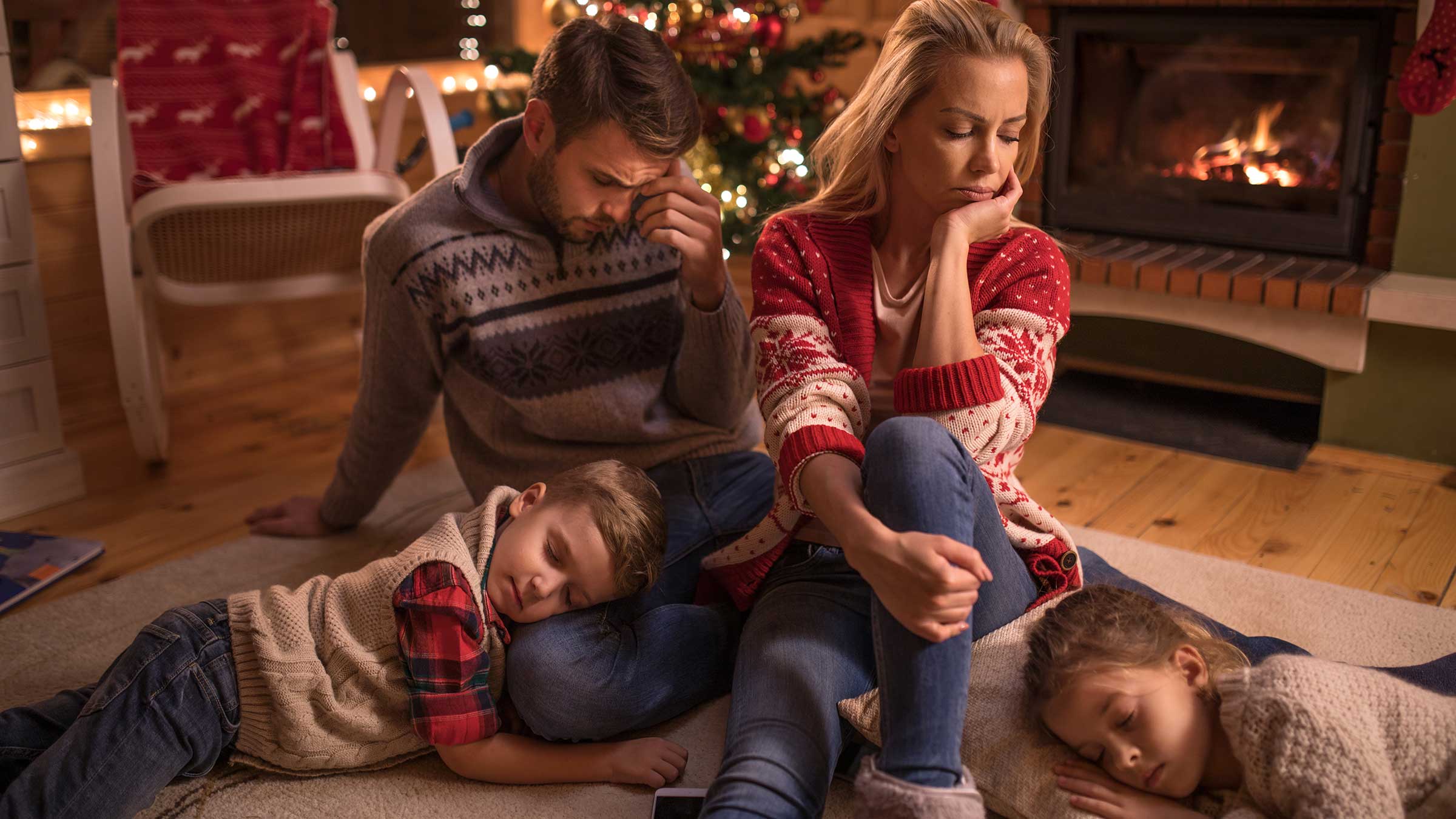
The holidays can come with a whole lot of pressure — relatives in your guest room a little too long, kids overstimulated or bored, more shopping, cooking, mingling.
The most wonderful time of the year? Not exactly, for some. The holidays can be overwhelming and filled with anxiety.
This year the top sources of stress for Americans are national and world affairs, higher prices putting a crimp on holiday budgets and increasing cases of respiratory illnesses, according to a recent national survey conducted here at The Ohio State University.
Whatever you might be worried about, know that it's possible to actually enjoy the season without escaping family gatherings with a trip overseas.
Consider these sources of holiday stress and how to handle them:
National and world affairs
If you frequently scroll through the headlines about violent crime, political controversy and escalating international conflicts, it can be distressing.
What you can do: While there’s little you can do to control the turmoil, you can control your exposure to it. Limit your time glued to your TV watching the news and avoiding doom scrolling through online news stories and social media.
Higher prices and holiday budgets
Between flights and gifts, restaurant tabs and new tires, the holidays can be expensive. And prices on pretty much everything have gone up. If you’re coupled and don’t quite agree on how much is reasonable to spend, spats can happen.
What you can do: Before you start shopping for the holidays, decide how much is reasonable to spend on the vacation and gifts and just how wide the circle of gift- giving will be this year, keeping your budget in mind. If you have a partner, try to come to an agreement on how much you’ll spend, so no one is surprised when the credit card bills come in. Secondhand items on Facebook Marketplace, for example, can be a much less expensive alternative to buying every gift new. Also, think about being crafty. The gifts you make may cost a whole lot less than even the best sales.
Rise in seasonal respiratory illnesses
Unrealistic expectations
When you aim for everything to be perfect — the gifts, the meals, who attends — it’s easy to have your hopes dashed.
What you can do: Take a step back and consider what’s most important to you during the holidays. If it’s quality time with family members or friends, then if the food doesn’t end up being as great as you had hoped or you’re disappointed by a gift you got — or didn’t get — try to put that in perspective and instead savor the time you had to connect with others, talking, playing board games or going for a walk to see holiday lights.
Relationship tension
The holidays can bring together people who don’t normally spend time together, and that can bring to the surface some of the thorny issues in those relationships.
Even before the get-togethers begin, it can be easy to anticipate friction, what someone might say, how you or they might react. Soon, before you even see each other, you’re primed for crossfire. It can be stressful on couples, deciding which family members to spend time with and how much time is reasonable.
What you can do: Think ahead of what you’ll do if the conversation turns to certain topics that have triggered tension in the past. Are you going to walk away? Are you going to subtly shift the conversation, or be direct about not wanting to discuss it? It’s possible that the topic you’re leery about — your credit card debt, your daughter’s boyfriend, your plans of moving out of state — never come up. The drama you anticipate may be a whole lot worse than what actually happens.
If you’re in a relationship, try to compromise on which family and friends you plan to visit, for how long and whether you’ll stay at their homes or in a hotel. You might get some resistance. “How come you’re only staying for two days?” “Why don’t you leave the kids with us for the rest of the week?”
Regardless, this way, you’ll likely have a holiday that’s based more on what you and your family want.
Loneliness
If you’re without friends or family members to spend the holidays with, the season can be a reminder of what relationships you don’t have. It can be easy to give in to feeling sorry for yourself.
What you can do: Consider ways to connect with others. You don’t have to be alone. Volunteering at a food shelter or attending a church service are options. Being around people — even those who aren’t family or close friends — can help get you out of your head.
Loss of a loved one
This may be your first holiday without a relative or friend who died in the past year. As you think to past holidays together, that void may be particularly painful.
What you can do: Think of a way to honor your loved one who died. You can share memories and photos about the person at your gathering, or you may choose something more private, such as donating to a charity of their liking or going to a place they enjoyed.
Fear of Missing Out (FOMO)
Whatever we’re doing, someone else is doing something more exciting — or at least it seems that way when we read their latest post from a white sand beach in Hawaii or a Costa Rican rain forest. We can be especially apt to feeling as if we’re missing out if we’re not enjoying where we are. Escaping a gathering by tuning into our phones instead of the people around us can leave us feeling disappointed and those around us feeling ignored.
What you can do: When we get so focused on what we don’t like or what’s upsetting us, we forget about all that’s going well. Focus on the good. Try to think of what you can be grateful for. That won’t erase the difficulties, but it will help you keep them in perspective. So you didn’t get to go on an exotic trip for the holidays, but you’re not sick or in major debt, you have time off work and even some free babysitting offers from relatives. Make it a habit to think about what you’re grateful and keep that habit going, especially through the cold and sometimes gray first few months of the year.
And when the holidays are over, plan a trip or an outing with friends so that you have something to look forward to after the beautiful, twinkling lights are boxed up and back in the attic.

Help for mental health conditions
Ohio State offers personalized, compassionate care for your mental health concerns.
Learn more




